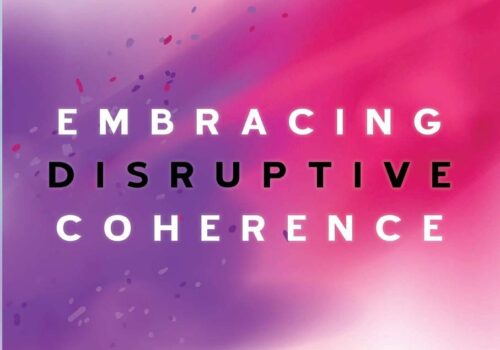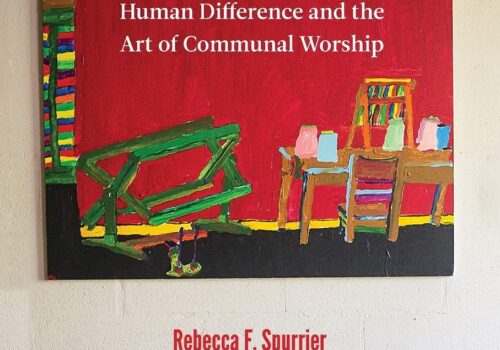Download PDF: Senior and Mehta, Editorial Essay
Practical Matters hosts an emerging and constructive conversation among many partners about religious practices and practical theology. Conversations hosted in this journal include practitioners and academicians who represent a variety of religious traditions, disciplinary locations, and methodological perspectives, with different intellectual heritages, interests, and commitments to description and prescription. By way of critical appraisal and response, the Reviews section is responsible for connecting the journal to and engaging it in relevant conversations about religious practices and practical theology happening beyond the journal’s website.
The conversations from which we draw can be broadly mapped among two groups: those who see their primary mission to be the description of religious practices and those who seek to construct useful paradigms for religious engagement with the world. Practical Matters values both of these groups and seeks to bring them into closer dialogue with one another.
A successful dialogue between these conversation partners will turn on two acknowledgments. First, those who understand their primary task to be construction will acknowledge that more accurate and robust descriptions of religious practices will illumine constructive work, and thus, that they have something to learn from those who specialize in description. The latter group in turn will acknowledge that all description has a normative quality, and thus, that they have something to learn from those who specialize in construction. The Reviews section here and in future issues assumes both of these acknowledgements. It therefore examines material in light of its utility to this emerging conversation.
This issue includes reviews of materials in American religion, focusing on both religious practices and Christian theologies of religious practices, with special attention to this issue’s theme of imagination. Within the study of American religion, the conversation about practices has grown out of the “lived religion” model of understanding religious life. Lived religion, as introduced just over a decade ago in Lived Religion in America: Toward a History of Practice, attempted to address what editor David D. Hall posed as a fundamental problem in the field: “[W]hile we know a great deal about the history of theology and (say) church and state, we know next-to-nothing about religion as practiced and precious little about the everyday thinking and doing of lay men and women” (Hall vii). The lived religion conversation altered the landscape of American religion scholarship in a number of ways, particularly by fostering a focus on the networks of practice and meaning for a given historical moment that resulted in a rich collection of thematic studies on topics such as race, gender, and class. However, a decade later, the editors of Practicing Protestants: Histories of Christian Life in America, 1630-1965 argued that this focus has lost some of the chronological grounding that allows us to track changes over time in the meanings that people make and the ways in which they do so.
One of the most compelling methodological points made by the editors of Practicing Protestantscomes from their desire to draw from both sociological literature about religious practices and theologies of practices. The former postulates a structural analysis that tends to undermine the possibility of human agency. The latter, on the other hand, engages virtue ethics, which constitutes a conversation about practice that remains hopeful about the possibilities of human agency. The result is a set of studies that take seriously both the formation of human agency within social structures and the human capacity to transform them.
We review Practicing Protestants itself but also Heather Curtis’ Faith in the Great Physician, which productively engages some of the challenges posed by PP. Curtis outlines the theological and philosophical trends that situated nineteenth-century faith healing. At the same time, she asks about concrete behaviors, for instance, the pretending of health despite the experience of pain. She allows us to understand this behavior not as charlatanism but rather as a complex set of engagements with the world.
Christian theologians, for their part, have begun to take more interest in the relationships between theological reflection and historical, cultural, philosophical, and social-structural analyses of practices. In recent decades, Christian theologies of practices in the U.S. context have focused on practices as constitutive elements of Christian formation. Drawing on a range of philosophical and theological framings that emphasize the distinctiveness of the Christian life in the modern world, theologians recovered theologies of practices that have deep roots in traditions of Christian theological reflection. More recently, Christian theologians have attempted to bring these insights into conversation with analyses of lived Christian practices.
Here we review a number of works that examine these relationships. Ted Smith’s The New Measures responds from a Christian theological standpoint to many of the issues raised in the historical material noted above. Smith develops a theology of history that discloses the redemptive arc of history in the relationship between New Measures preaching and democratic practice in early nineteenth-century America. John Swinton and Harriet Mowat’s Practical Theology and Qualitative Research introduces qualitative research methods, such as ethnographic interviewing and participant observation, as useful tools for practical theological methods. Mary McClintock Fulkerson in her book Places of Redemption uses ethnographic research on a church in North Carolina to illumine the radically particular contours of redemption. The essays in Dorothy Bass and Craig Dykstra’s edited volume For Life Abundant pay close attention to the messy relationships between practices that form ministers in the contexts of academy and church to seminary education that faithfully and effectively bridges both of these contexts. Jacqueline Bussie’s Laughter of the Oppressed examines novels from across historical, religious, and cultural contexts to construct a Christian theological framing of laughter as a response to Christian theodicies. Victor Anderson in his Creative Exchange develops a pragmatic theology of African-American religious experience. Anderson’s book accounts for constructive practices of African-American identity formation in order to theorize identification in ways that do not rely exclusively on the experience of white oppression.
These works have a couple of things in common. First, they don’t allow theological reflection to shy away from serious engagement with methodologies that disclose the messiness of religious practices as they exist in lived experience. Second, these works allow the gaps between theological prescription and historical, social-scientific, and institutional description of practices to open up space for constructive theological reflection.
Within this framing, we also review two works that pay particular attention to the relationship between religious practices and imagination: David Kelsey’s Imagining Redemption and Kwok Pui-lan’s Postcolonial Imagination and Feminist Theology. Both of these texts look at the ways in which imagination both is constituted within practices and acts as a constructive faculty that reinvents practices.
We hope that the reviews in this issue of Practical Matters suggest the contours of an emerging conversation about religious practices and practical theology. We welcome any constructive or critical feedback readers may have about the work of this section.




